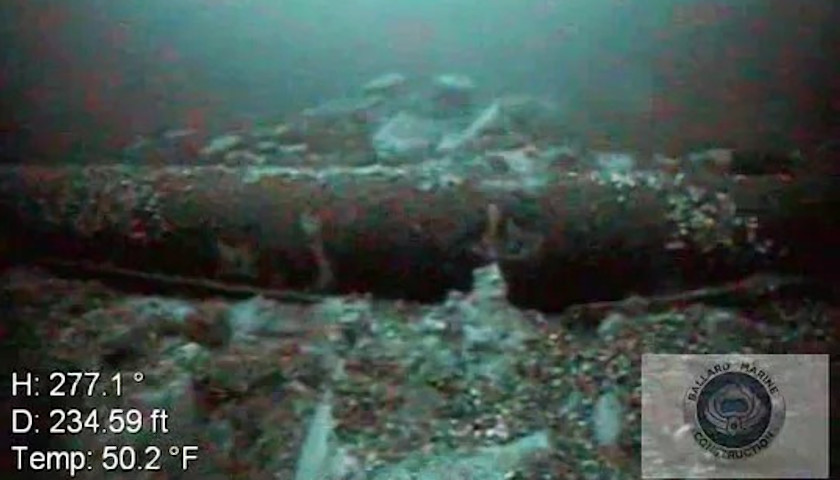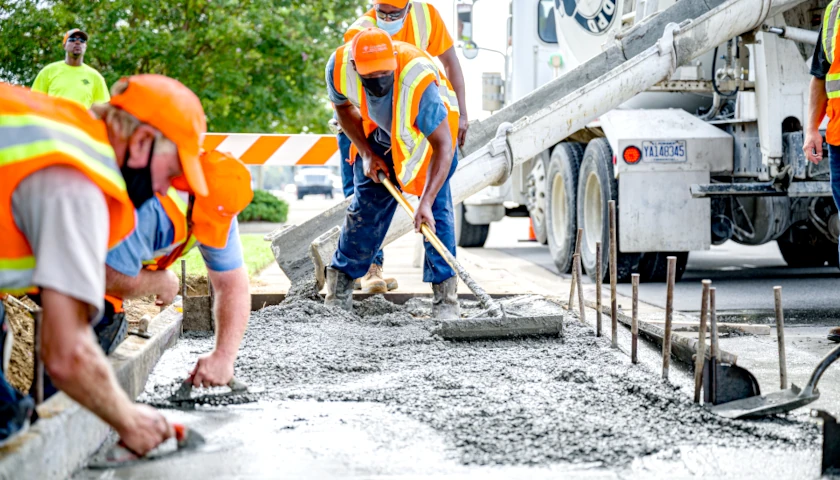by Bruce Walker
Gov. Gretchen Whitmer’s administration hasn’t revealed alternatives to transport more than half a million barrels of natural gas liquids if it succeeds in its legal efforts to close the Enbridge Line 5 pipeline in May 2021.
Enbridge spokesperson Ryan Duffy told The Center Square there are no pipelines or other alternatives that can readily substitute for Line 5 in transporting the crude oil and natural gas liquids to the refineries and other facilities served by Line 5.
In operation under an easement agreement with the state of Michigan since 1953, Line 5 includes a span beneath Lake Michigan near the Straits of Mackinac. The pipeline transports up to 540,000 barrels each day between Wisconsin and Ontario.
Whitmer and Michigan Attorney General have filed suit in Ingham County Circuit Court to force Enbridge to decommission Line 5 by mid-May. Enbridge has filed a countersuit in federal court.
“According to the 2017 Alternatives Analysis for the Straits Pipelines report, more than 2,000 tanker trucks would be required to deliver each day what Line 5 transports in Michigan,” Hillsdale College economist Gary Wolfram previously told The Center Square.
For its part, Enbridge remains undeterred.
“Enbridge will vigorously defend the validity of the easement and its right to operate the pipeline,” Duffy said.
“Line 5 is a critical source of 540,000 barrels per day of natural gas liquids (used to make propane) and crude oil supply for Michigan and surrounding areas that make up the regional supply network producing transportation fuels and consumer goods,” Duffy said, adding: “It supplies the majority of the jet fuel to the Detroit Metro Airport, which annually contributes $10 billion to the State’s economy.”
Duffy also added: “Several refineries that rely heavily on Line 5 oil will be severely impacted, while the fractionators in Michigan and Ontario that use Line 5 product to manufacture propane used to heat homes and for other purposes will be forced to close.”
According to Duffy, a disruption to Line 5 would result in a daily shortage of millions of gallons of transportation fuel, impacting the entire region including Wisconsin, Ohio, Pennsylvania, Ontario and Quebec.
Also, he said, Michigan would have a daily shortage of 756,000 gallons of propane. Propane shortages and price spikes, particularly in the Upper Peninsula, would present a problem for consumers who rely on propane for home heating.
“This likely explains why the State provided for termination of the easement in May, but does not solve future problems that will arise when the weather turns cold again,” Duffy said.
Last week, the Mackinac Center for Public Policy’s Environmental Director Jason Hayes told The Center Square the governor’s Upper Peninsula Energy Task Force hasn’t progressed beyond the preliminary phase of identifying fuel transportation alternatives should Line 5 cease operations.
“Alternative energy options have been identified through the continuing work of the Upper Peninsula Energy Task Force and the Michigan Department of Environment, Great Lakes, and Energy expects the market to dictate what combination of those options would be most effective and reliable,” Nick Assendelft, EGLE Media Relations and Public Information, told The Center Square in an email.
“In addition, the UPETF identified in its propane report a number of areas where consumer protections could be strengthened, energy efficiency enhanced, and programs improved for families in need of heating assistance. Energy markets respond quickly to the laws of supply and demand and EGLE is confident these market forces will drive propane marketers to adjust their operations and keep Upper Peninsula customers supplied in the future,” he added.
“Beyond EGLE, the Michigan Department of Transportation (MDOT) has a contract with a consulting firm, WSP, working with Dr. Pasi Lautala at Michigan Technological University, for an approximately eight-month study on delivering propane by rail,” Assendelft continued. “The study also will identify rail infrastructure upgrades, including rail-served storage capacity, necessary for improved distribution of propane by rail in Michigan’s Upper Peninsula. This was one of the recommendations (No. 5) in the UPETF’s propane report.”
In the waning days of the administration of Whitmer’s predecessor, Gov. Rick Snyder, Enbridge received the go-ahead to move the pipeline to a utility tunnel, which would be built 100 feet below the lakebed. Enbridge said it would foot the total estimated $500 million construction costs.
Enbridge also estimated the project could take up to five years to complete.
However, Nessel has been endeavoring to scuttle the tunnel project as well.
In the meantime, Enbridge continues to seek permits for the tunnel construction, including wastewater and wetlands permits from the Michigan Department of Environment, Great Lakes and Energy.
EGLE was initially due to make its determination on both permits during the first week of this month, but announced it was extending the review period to the end of January 2021 with Enbridge’s consent.
Additionally, Enbridge requires a site permit from the Michigan Public Service Commission. The MPSC, however, won’t issue a determination until after an anticipated court settlement is reached next summer.
– – –
Bruce Walker is a regional editor at The Center Square.





